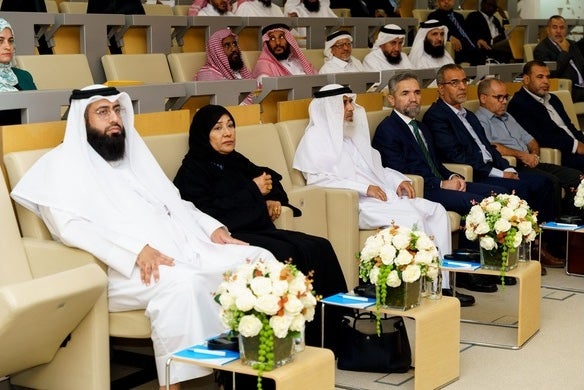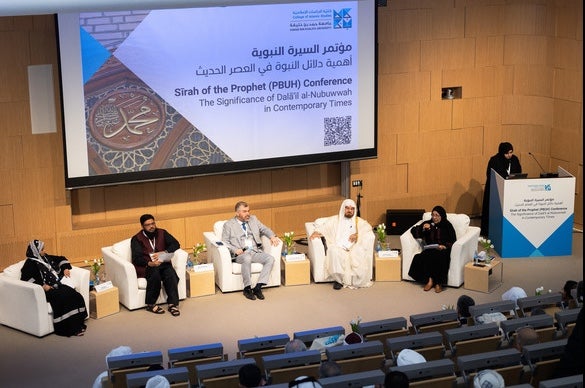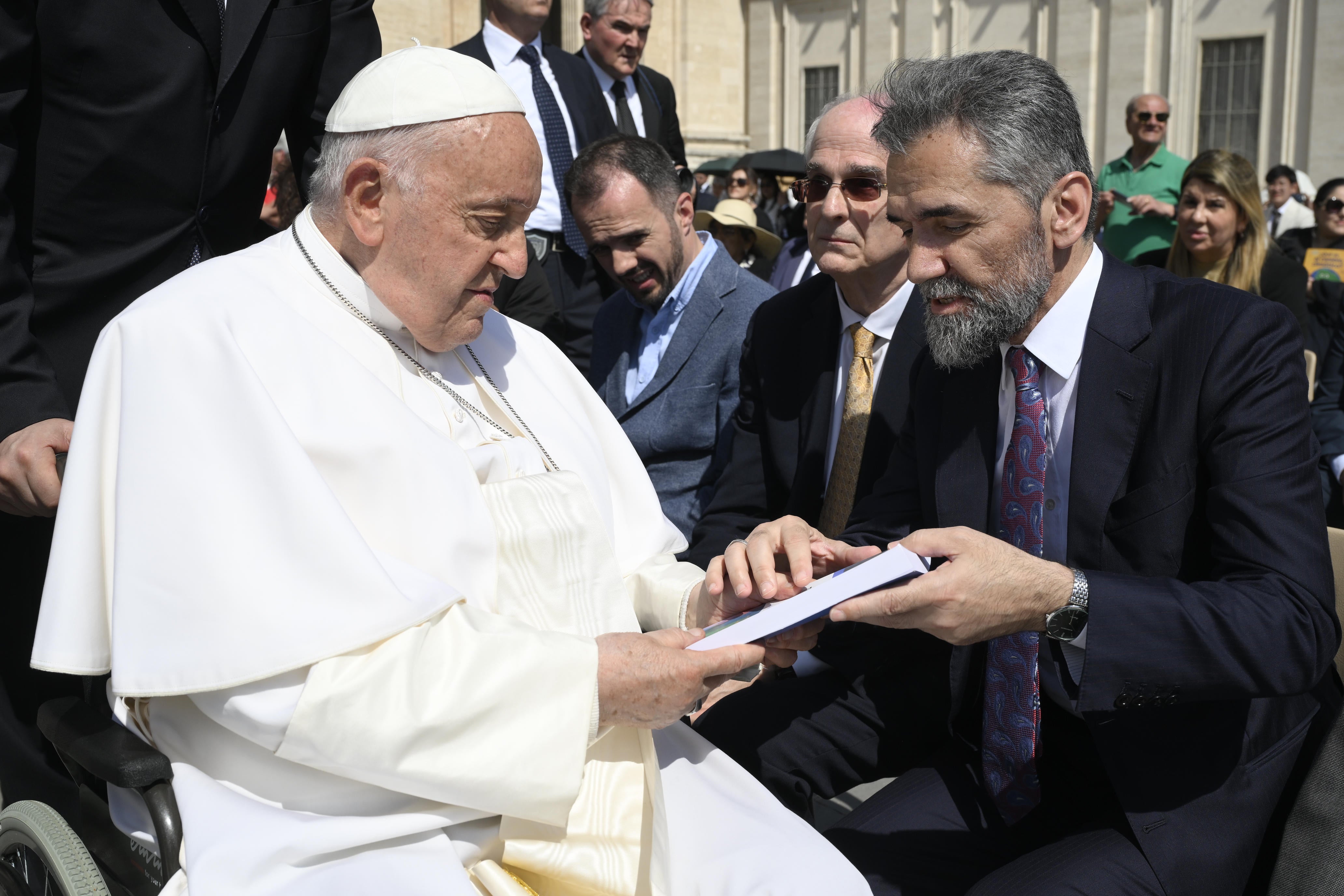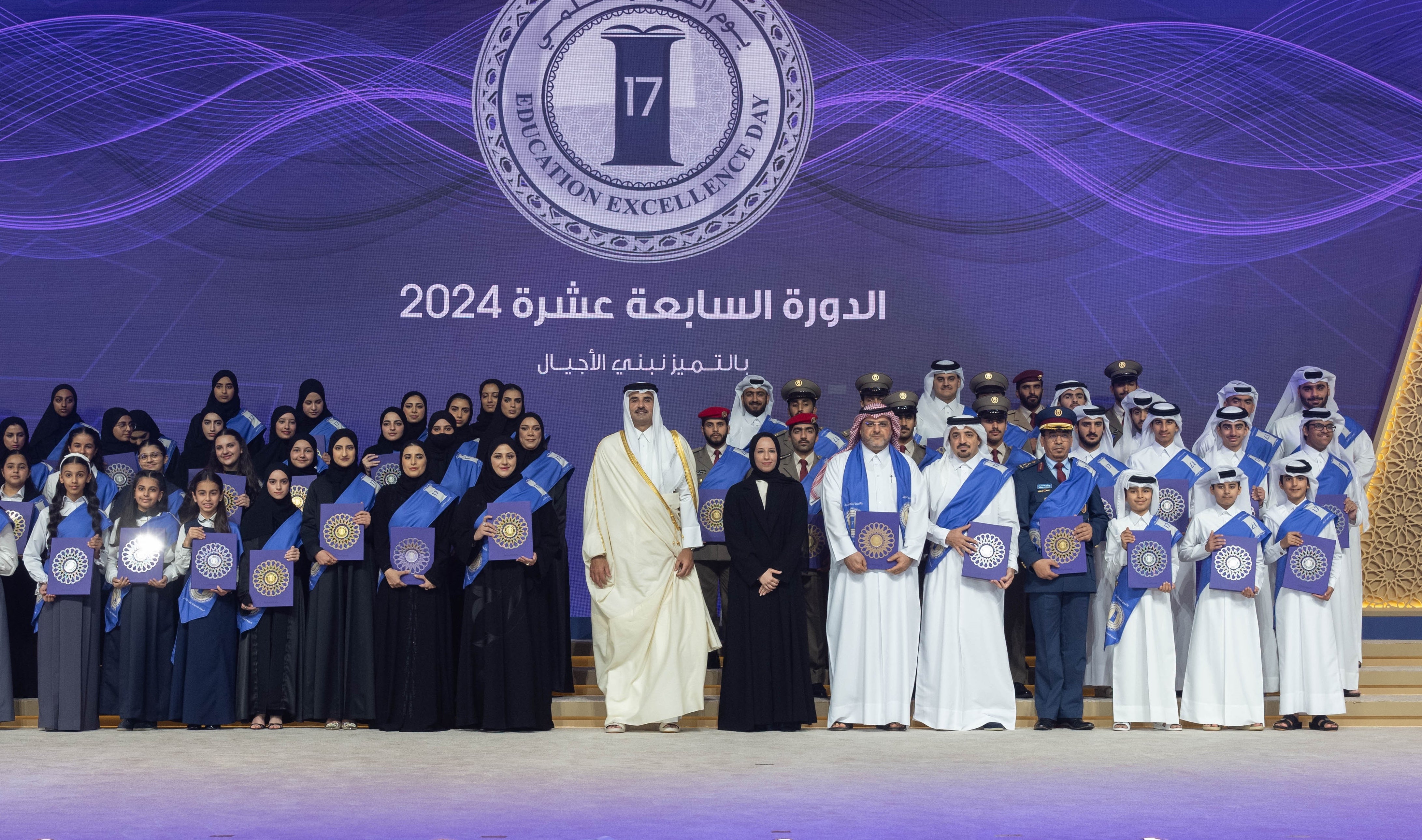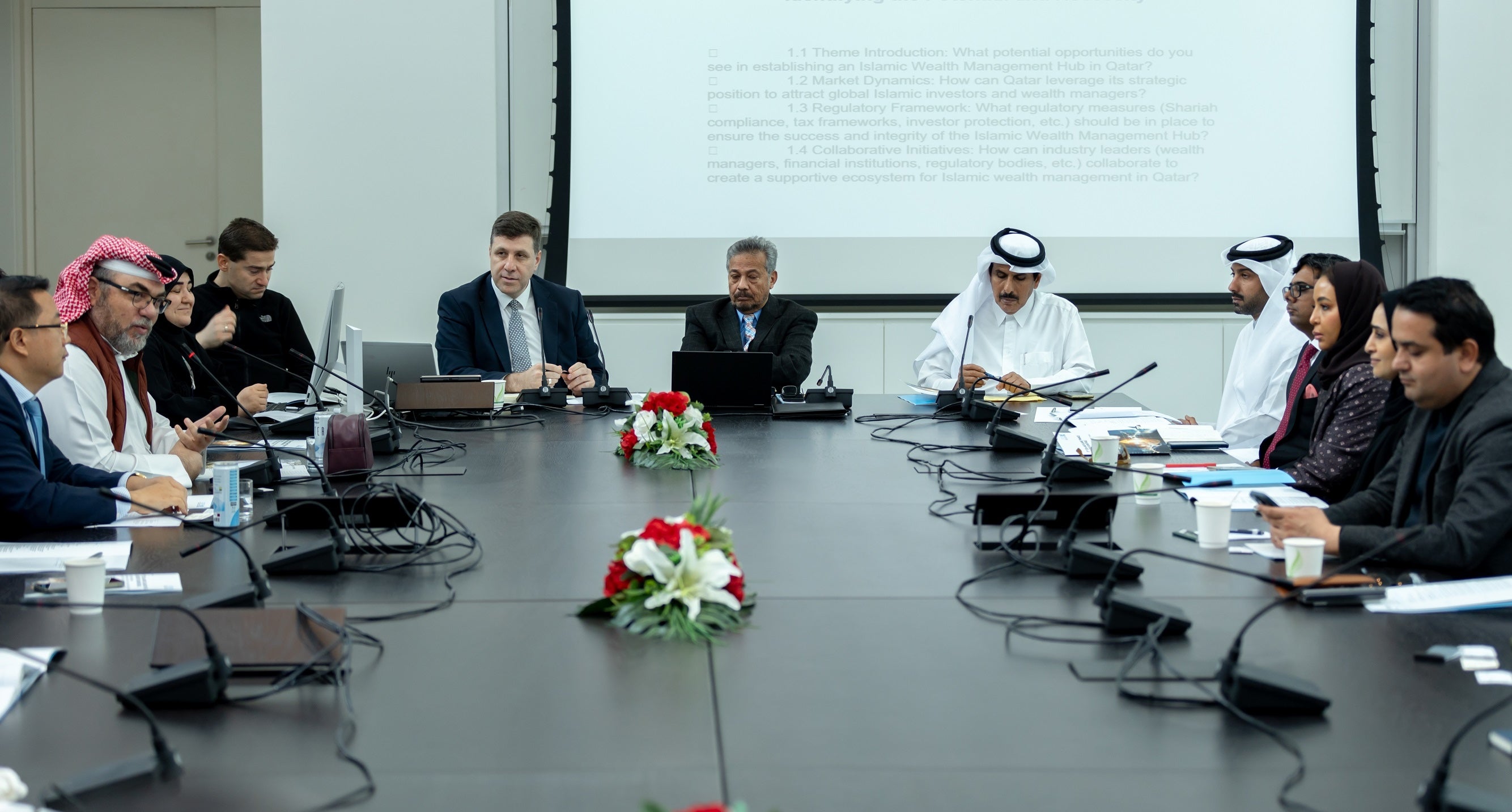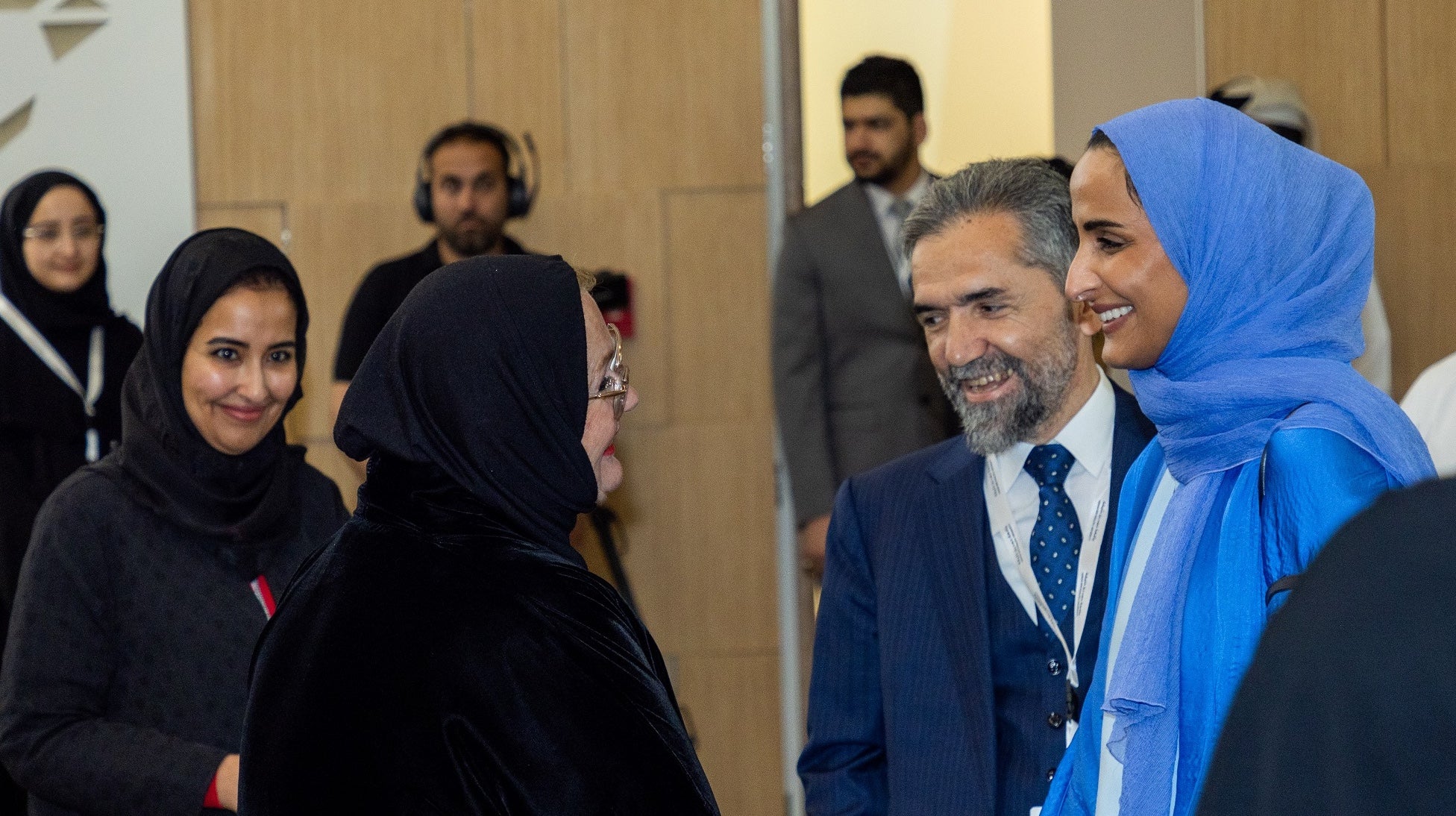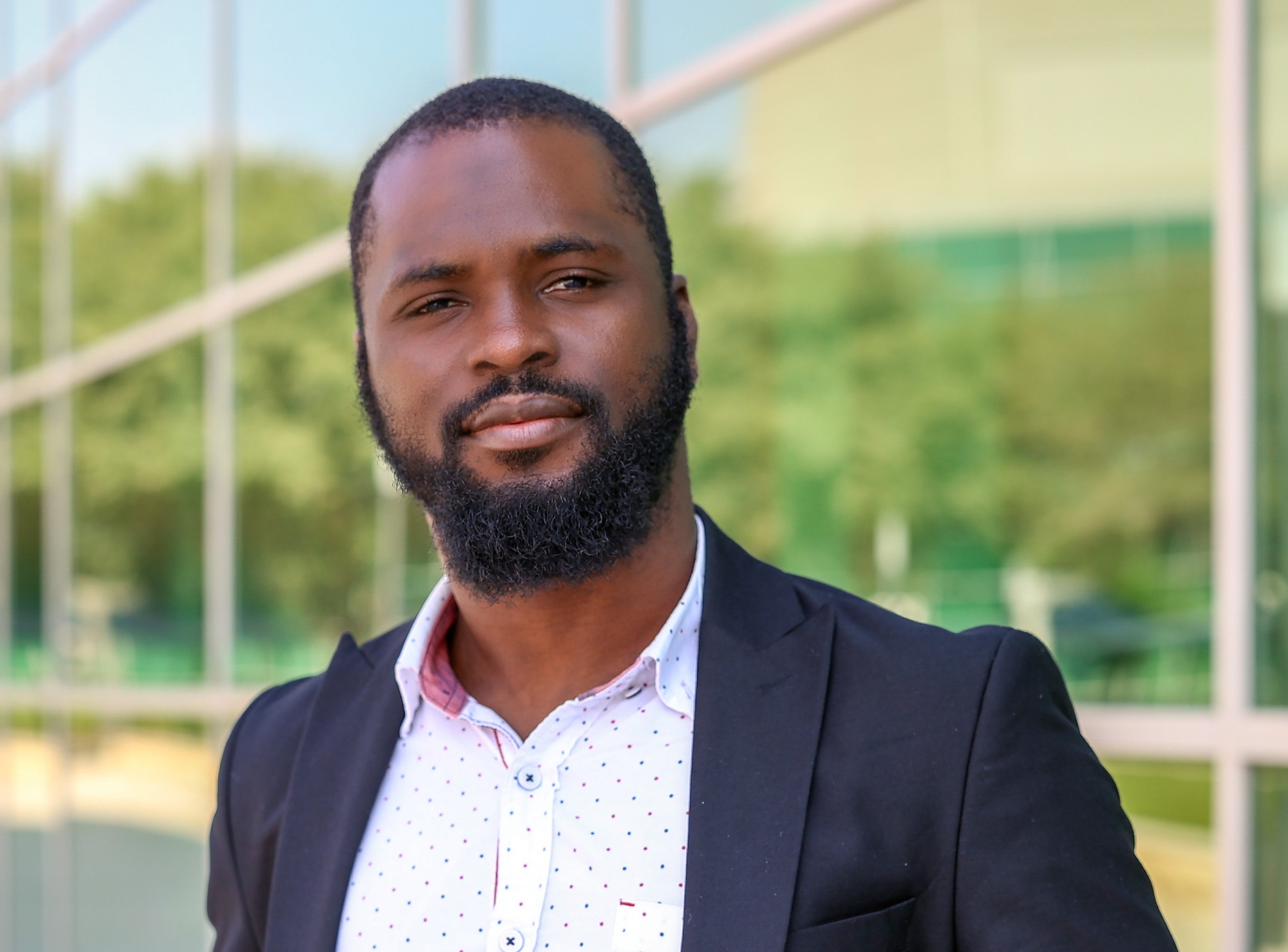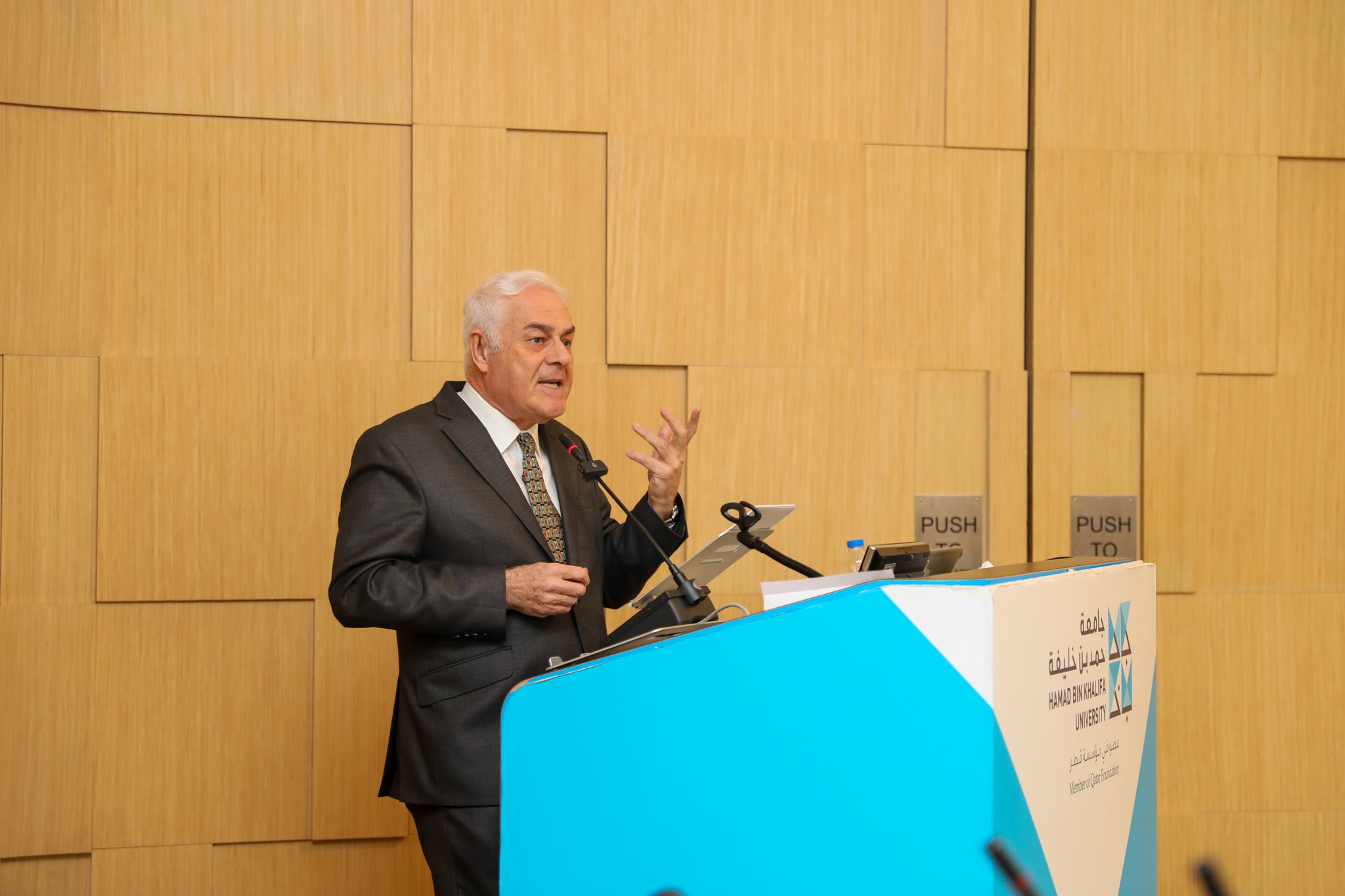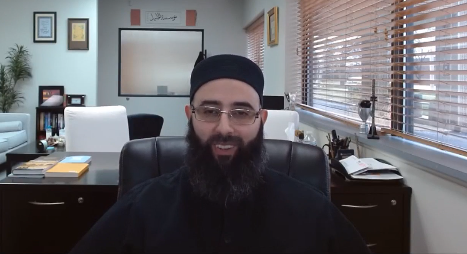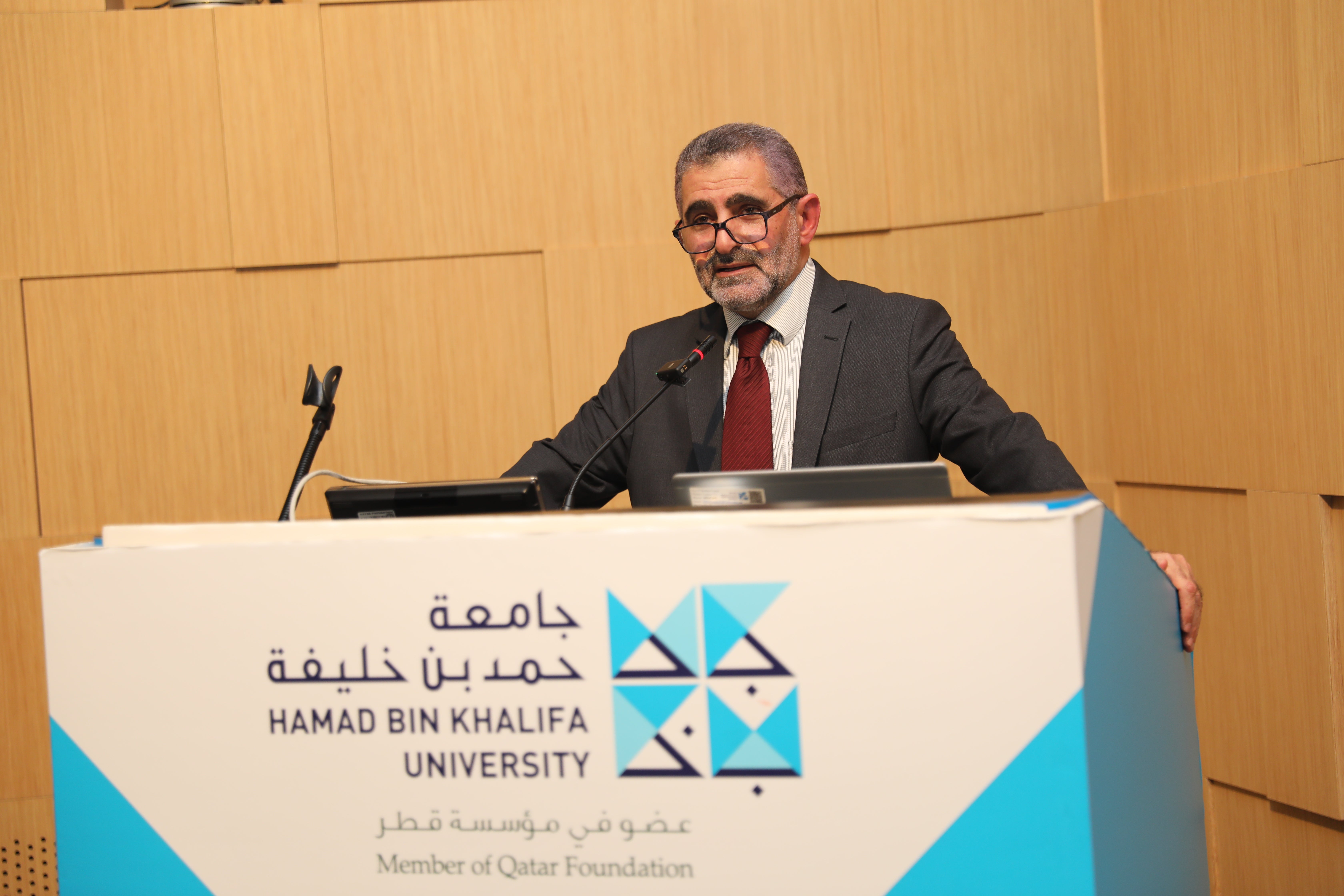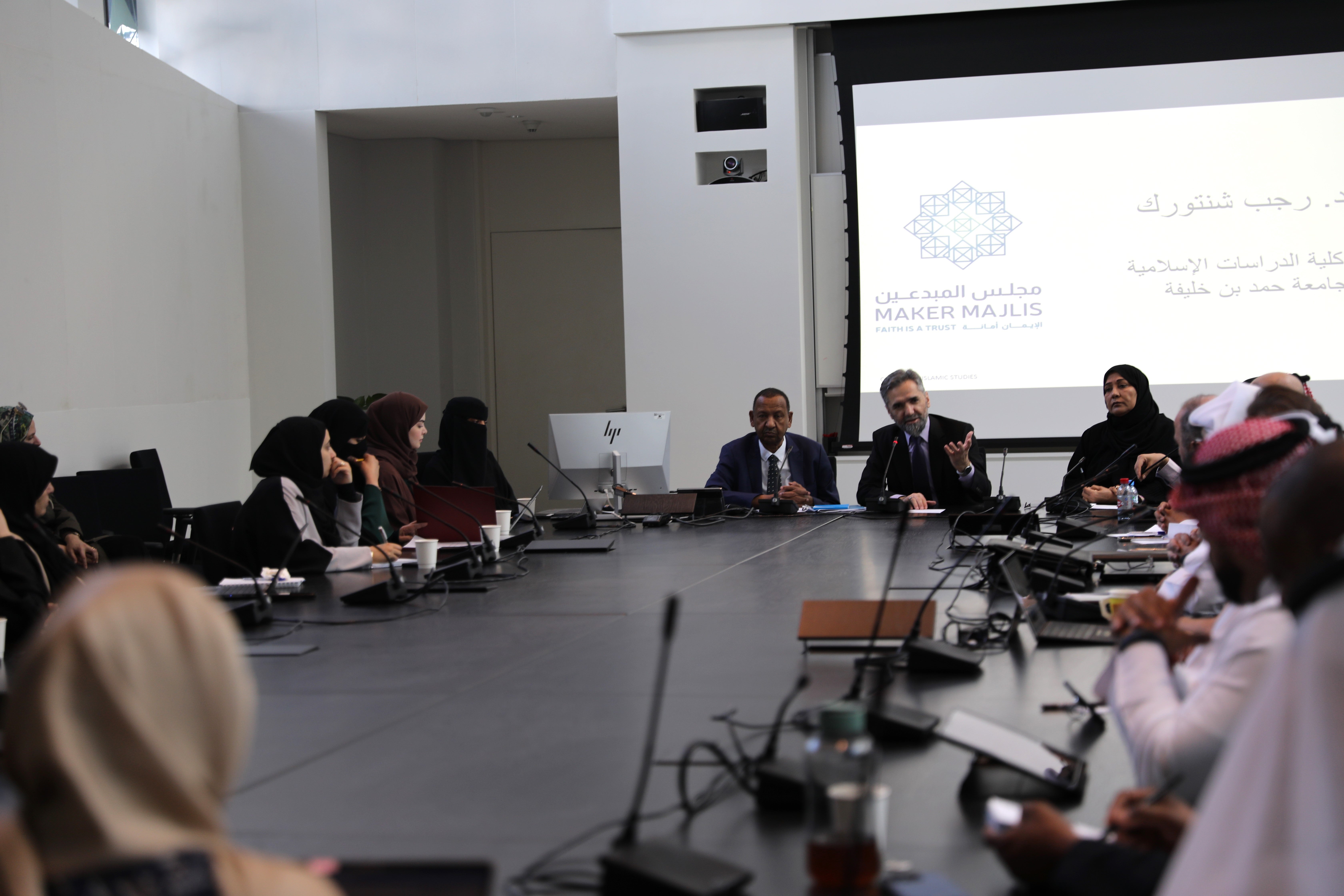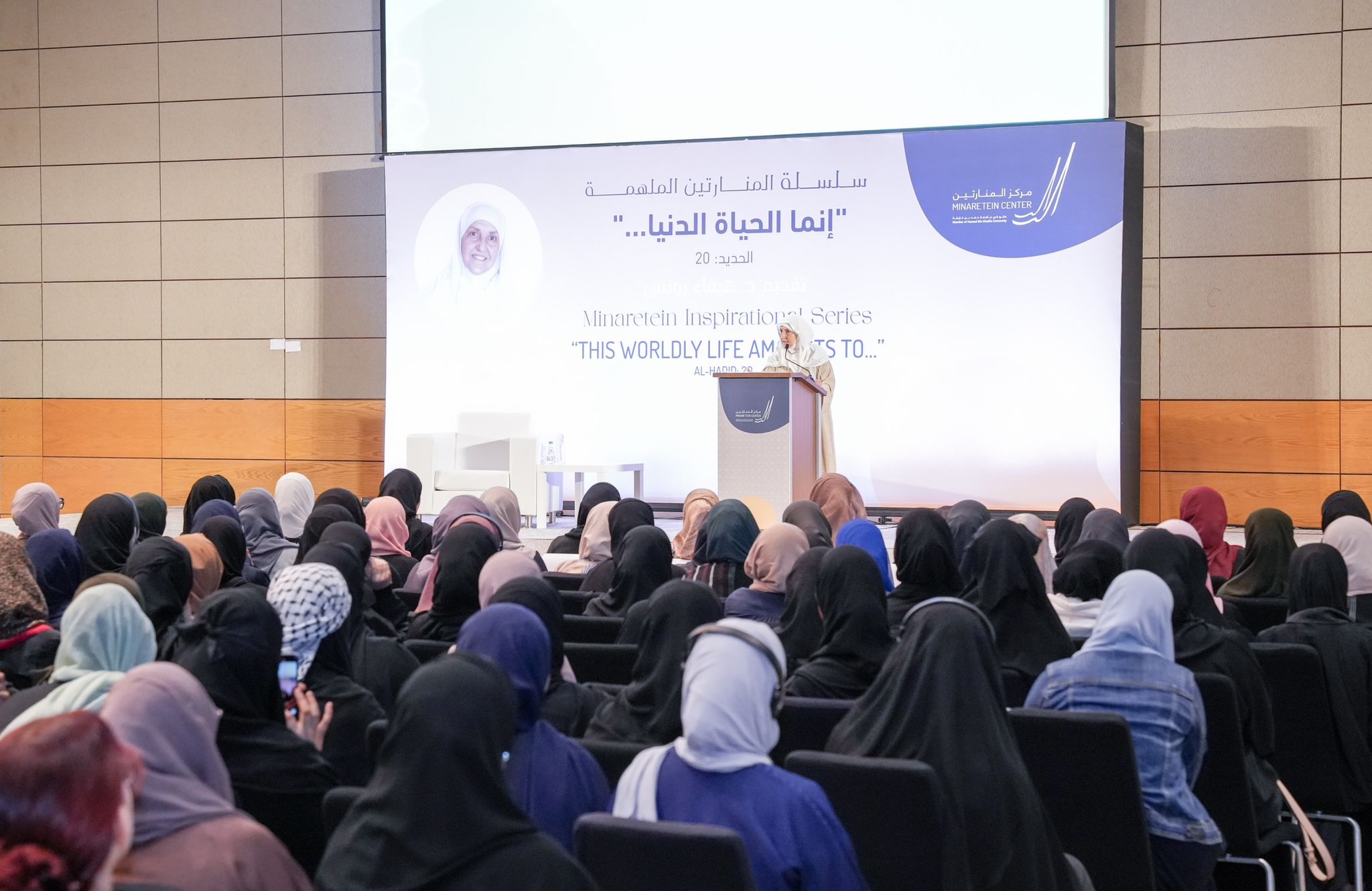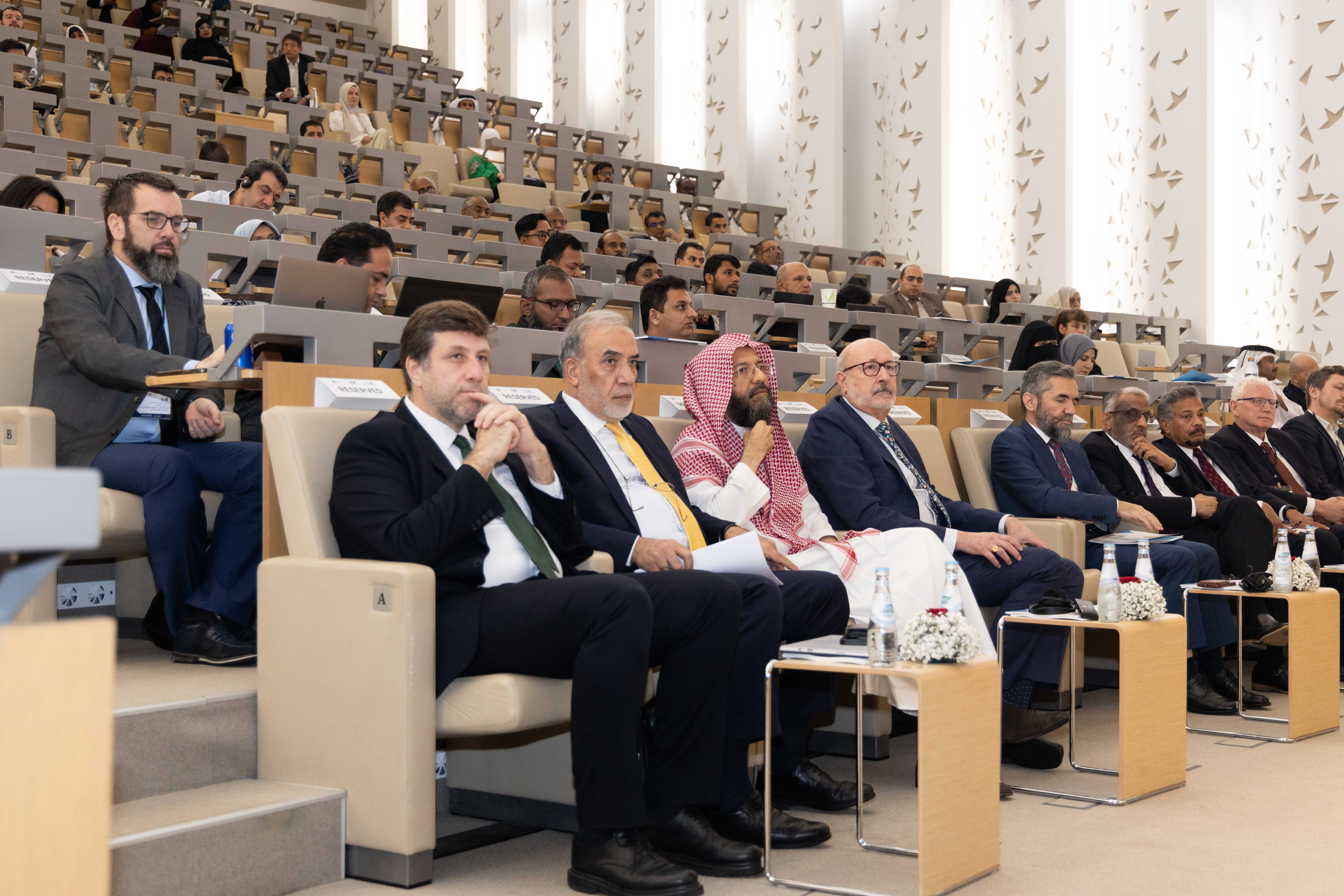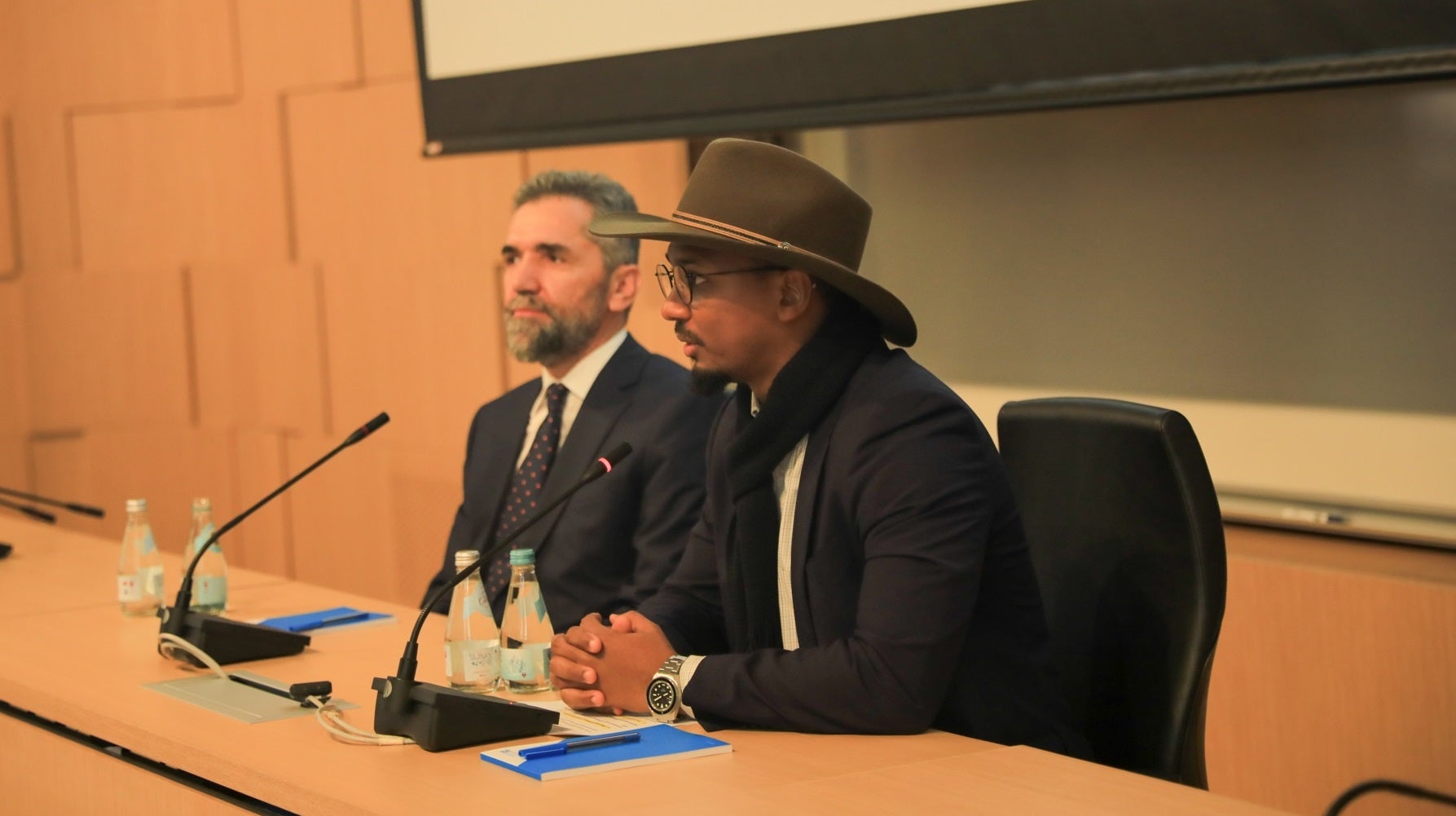
HBKU’s College of Islamic Studies Explores Muslim Identity and Autonomy
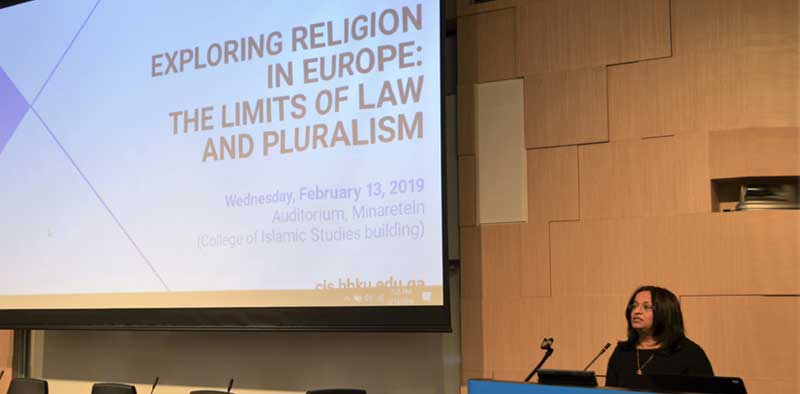
Distinguished Lecturer Series and the CIS Student Council take a closer look at contemporary challenges in constructing a Muslim identity
Doha, February 24, 2019 – The College of Islamic Studies (CIS) at Hamad Bin Khalifa University (HBKU) hosted a series of talks by prominent academics from international institutions during the month of February. The lectures focused on issues pertinent to Muslim identity and Islamic political thought.
Challenges raised by the diversity of religious and cultural identities in Western societies were explored by Dr. Mona Siddiqui, professor of Islamic and interreligious studies at the University of Edinburgh, in her talk, Exploring Religion in Europe: The Limits of Law and Pluralism on February 13. Dr. Siddiqui contended that while pluralism is often regarded as a positive development, it can present unique challenges for secular communities. The lecture explored how religious communities, while diverse, are often accused of demanding legal exceptionalism, which requires Muslims to challenge the oversimplified view of Shari’a law on which this is based.
Shari’a and Sovereignty in Christian-Muslim Debates was a key theological debate tackled by Dr. Joshua Ralston, lecturer in Muslim-Christian relations at the University of Edinburgh, on February 14. Dr. Ralston examined the relationship between Shari’a and political sovereignty, a debate which is the subject of frequent critique by Christian theologians and secular theorists. The lecture provided a broader framework to explore the question beyond the confines of fierce secularism or state-centric Shari’a.
Commenting on the lectures, Dr. Joseph Lumbard, who leads the Distinguished Lecturer Series at CIS, said: “CIS’s overarching interests lie in exploring and better understanding topics that affect Muslims and their communities at large. The Distinguished Lecturer Series was initiated to encourage scholars from all around the world to engage, consider, and present their thoughts within the college, which continues to position itself as a focal point for contemporary Islamic studies, and as a nurturer of modern Islamic discourse.”
Continuing on the theme of identity and Muslim autonomy, Dr. Salman Sayyid, renowned scholar and author of Recalling the Caliphate, was invited by the CIS Student Council to shed light on constructing a Muslim identity in a postcolonial world, in his talk on February 19. Dr. Sayyid discussed the themes explored in his book, which investigates the obstacles that inhibit Muslim demands for autonomy in a postcolonial world and the larger decolonial project that revolves around Critical Muslim Studies.
In response to the successful workshops and public lecture delivered by Dr. Sayyid, Nagat Emara, vice-president of the Student Council and student of the Master of Arts in Islamic Studies program, commented: “CIS has granted us priceless opportunities to organize thought-provoking panel discussions, seminars, and reading circles, which have helped widen our scope. The environment at the college is one that inspires and provides a space for personal and professional growth, and integrates us as members of a reflective community. The series, which was led by Dr. Sayyid, was the most exciting one we have organized to date, as it was an attempt to build a bridge between the discipline of Islamic Studies and the field of decolonial thought, which attracted students and academics to engage in the conversation.”
CIS aims to promote dialogue on ideas concerning Islam. The college offers five graduate degree programs and houses several distinguished research centers that bring together scholars and thought leaders from around the world. The college’s academic offerings are, in many cases, classified as the only of their kind in the MENA region.
For more information about HBKU’s CIS, and to learn about upcoming events, visit cis.hbku.edu.qa.
Related News
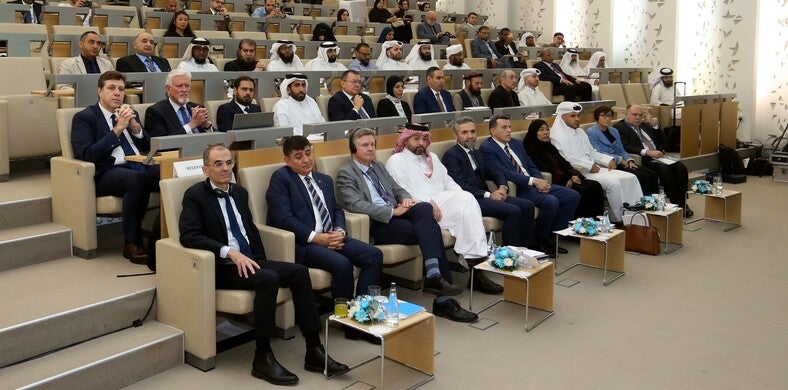
HBKU’s CIS, QFC, and QRDI Council Host 7th International Conference on Islamic Finance
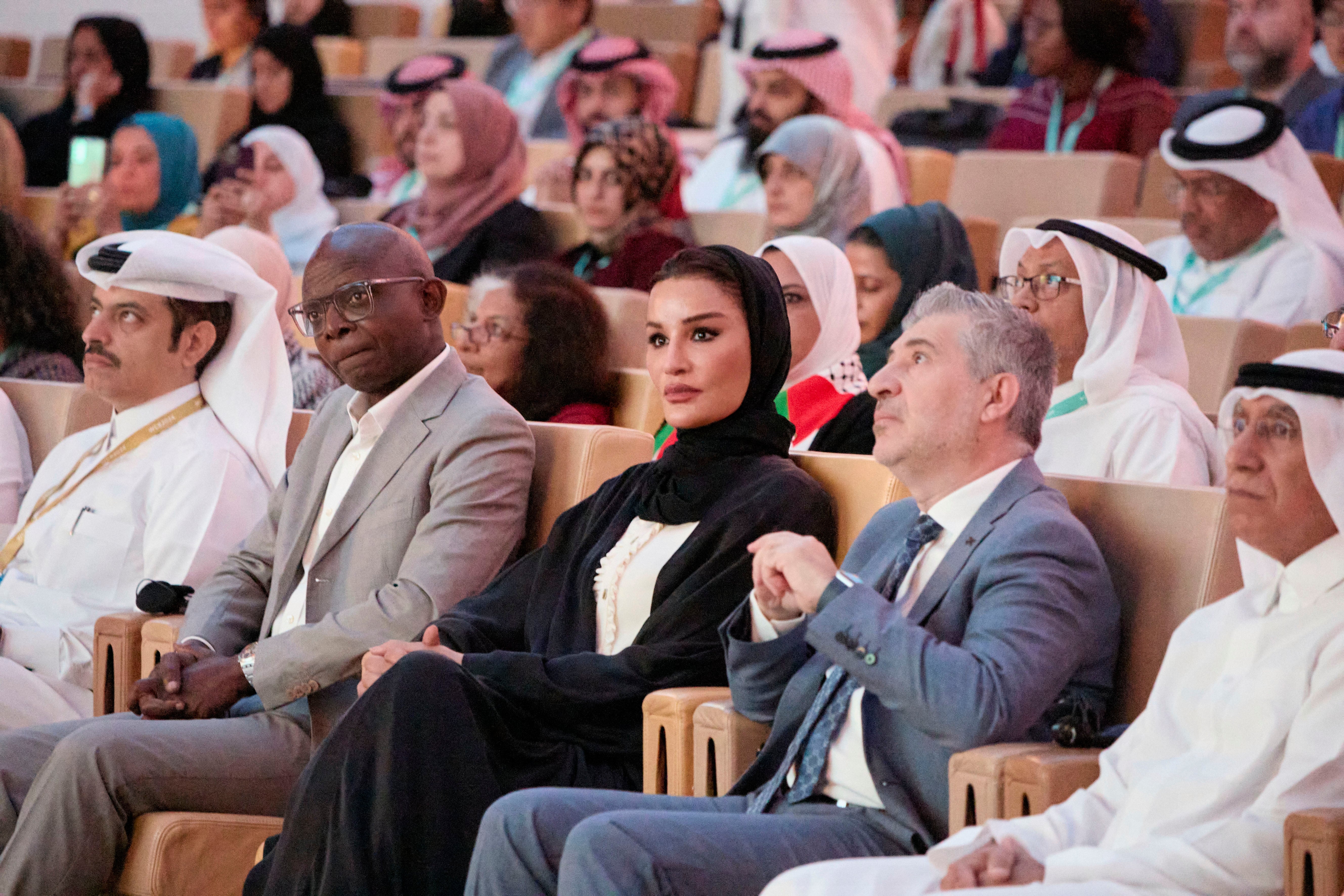
HH Sheikha Moza bint Nasser Witnesses HBKU and WISH Inaugurate First World Congress of Bioethics Held in the Middle East
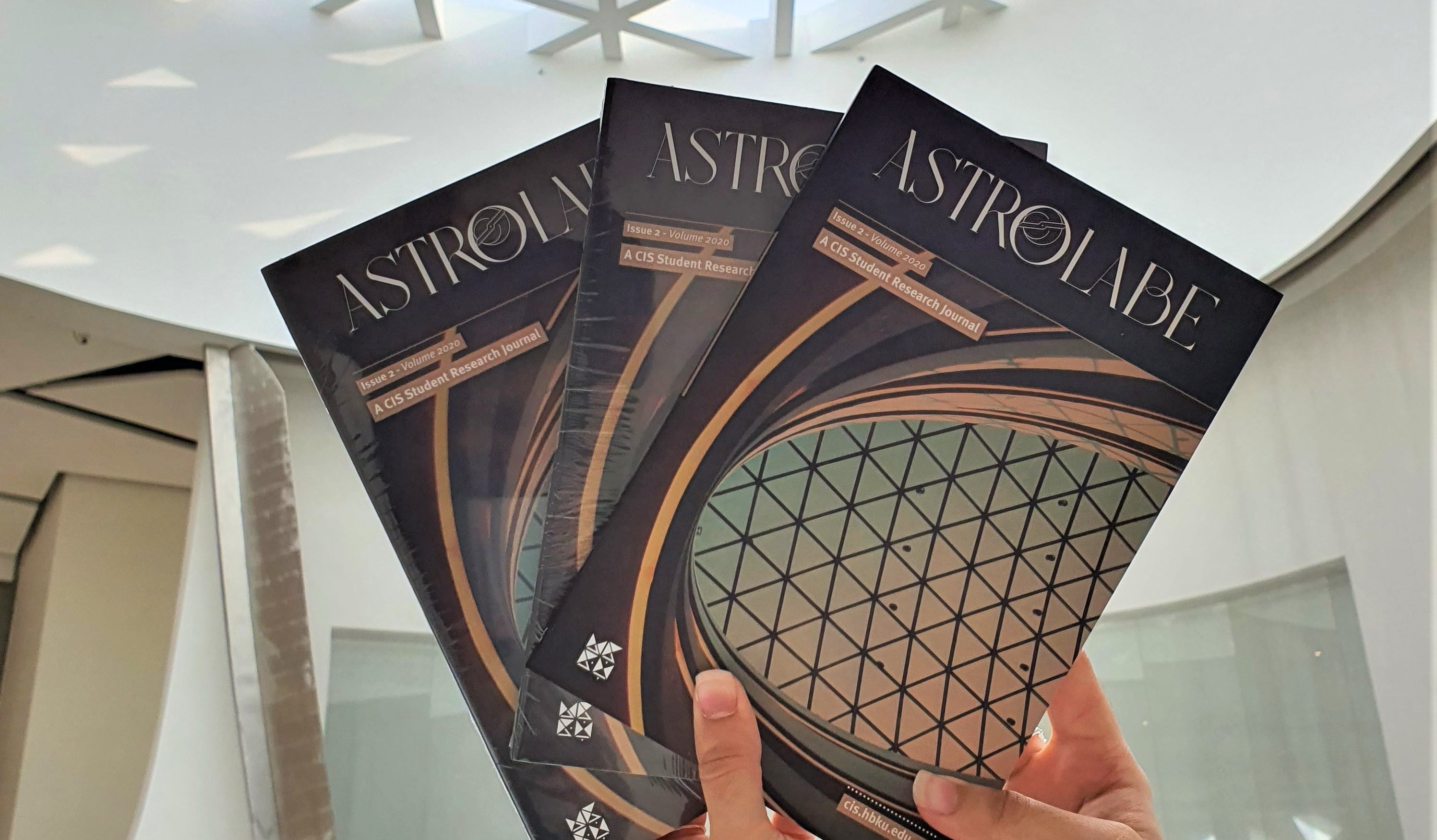
Fifth Edition of Astrolabe: A CIS Student Research Journal Explores Contemporary Issues in Islam
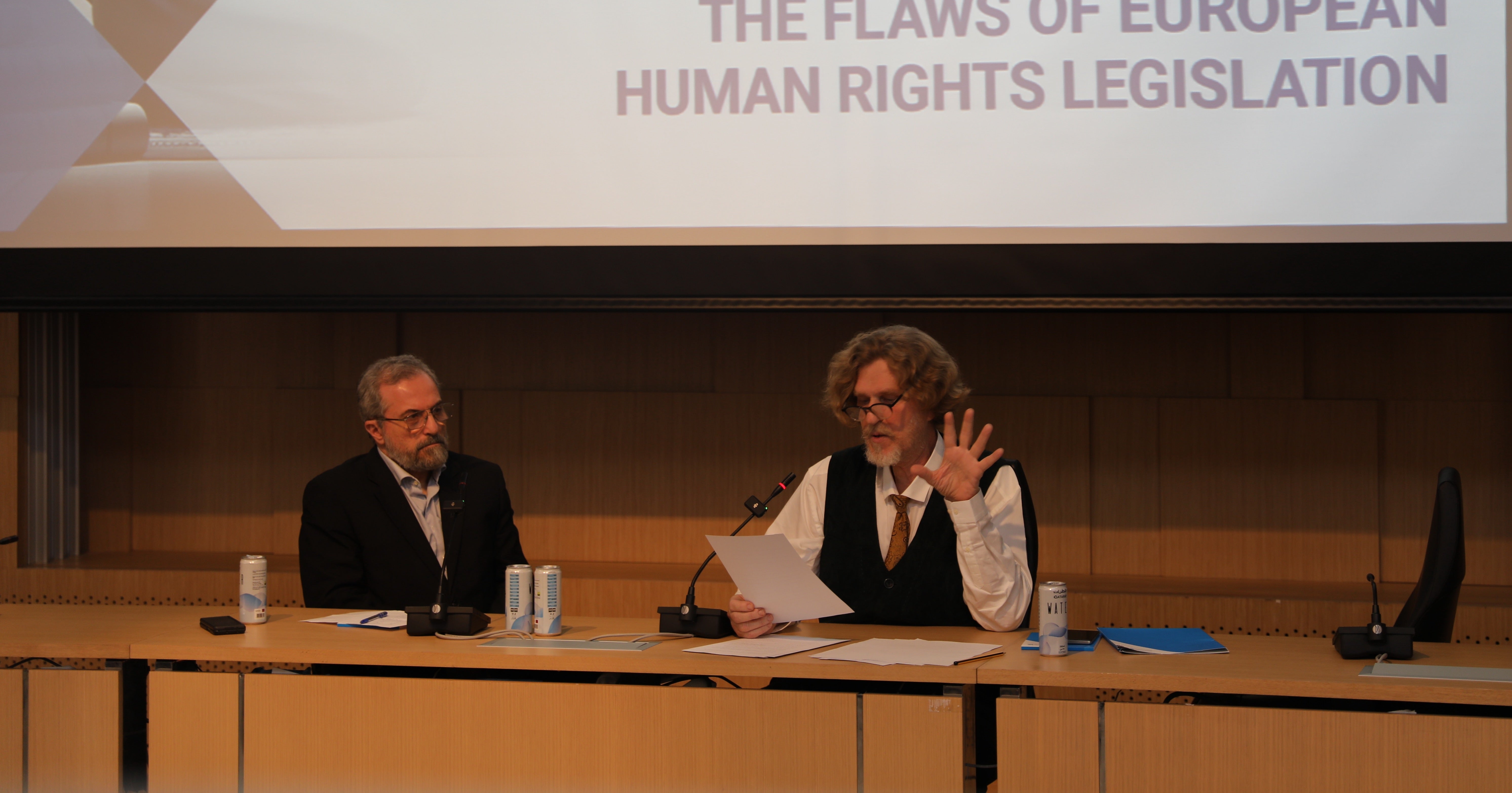
HBKU’s CIS Organizes Lecture Exploring Right to Belief Under European Human Rights Legislation
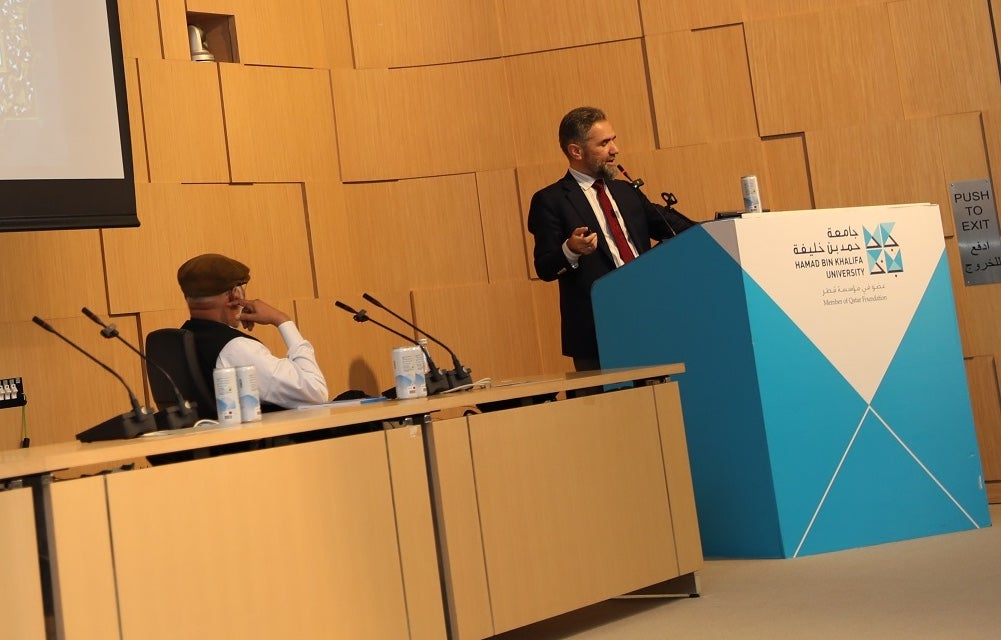
HBKU’s CIS Holds Lecture on the Sirah of the Prophet Muhammad’s (PBUH) Significance
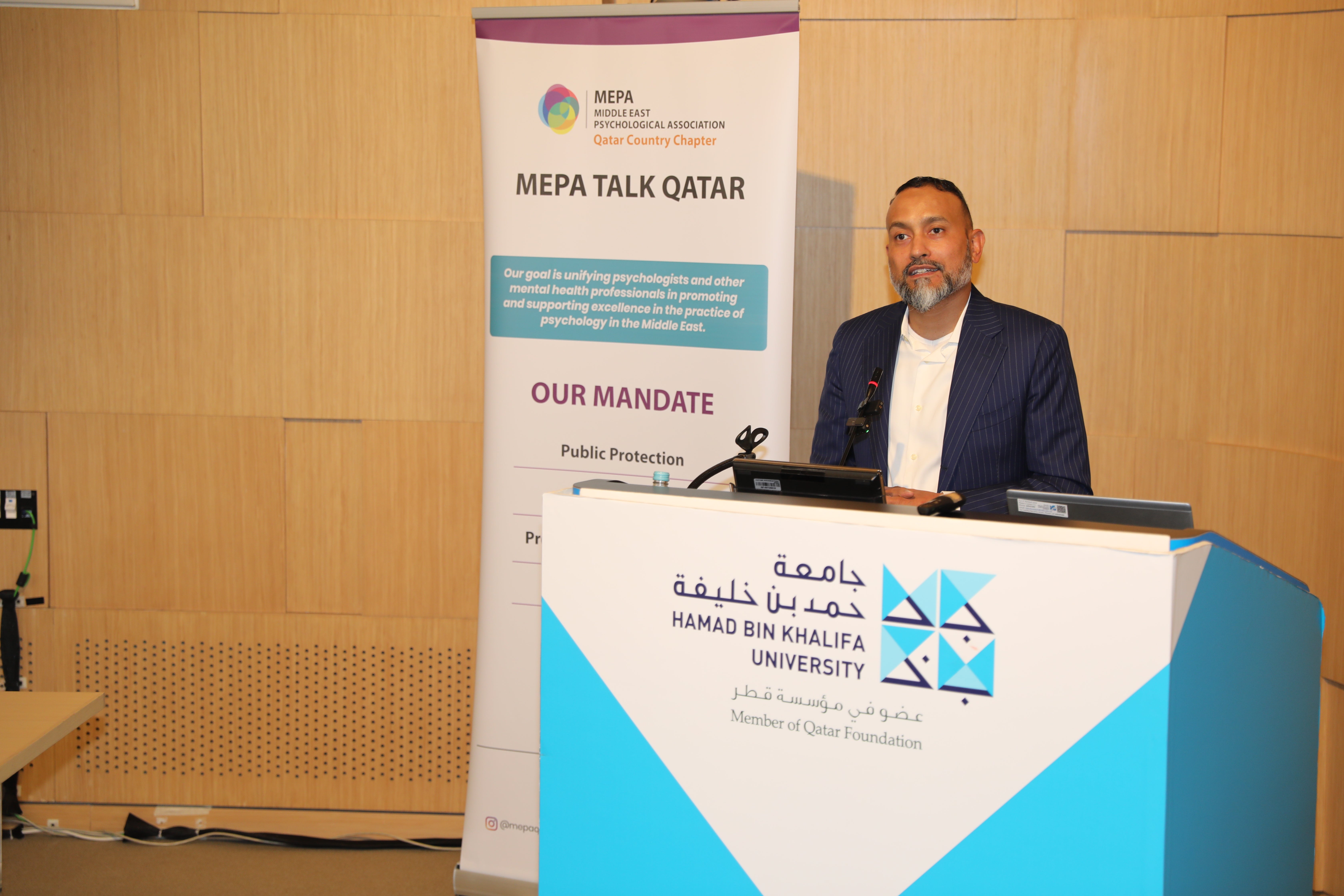
HBKU’s College of Islamic Studies Lecture Highlights Coping Strategies for Gaza Crisis

HBKU’s CIS, QFC, and QRDI Council Host 7th International Conference on Islamic Finance

HH Sheikha Moza bint Nasser Witnesses HBKU and WISH Inaugurate First World Congress of Bioethics Held in the Middle East

Fifth Edition of Astrolabe: A CIS Student Research Journal Explores Contemporary Issues in Islam

HBKU’s CIS Organizes Lecture Exploring Right to Belief Under European Human Rights Legislation

HBKU’s CIS Holds Lecture on the Sirah of the Prophet Muhammad’s (PBUH) Significance

HBKU’s College of Islamic Studies Lecture Highlights Coping Strategies for Gaza Crisis

HBKU’s CIS, QFC, and QRDI Council Host 7th International Conference on Islamic Finance

HH Sheikha Moza bint Nasser Witnesses HBKU and WISH Inaugurate First World Congress of Bioethics Held in the Middle East

Fifth Edition of Astrolabe: A CIS Student Research Journal Explores Contemporary Issues in Islam

HBKU’s CIS Organizes Lecture Exploring Right to Belief Under European Human Rights Legislation

HBKU’s CIS Holds Lecture on the Sirah of the Prophet Muhammad’s (PBUH) Significance

HBKU’s College of Islamic Studies Lecture Highlights Coping Strategies for Gaza Crisis

HBKU’s CIS, QFC, and QRDI Council Host 7th International Conference on Islamic Finance

HH Sheikha Moza bint Nasser Witnesses HBKU and WISH Inaugurate First World Congress of Bioethics Held in the Middle East

Fifth Edition of Astrolabe: A CIS Student Research Journal Explores Contemporary Issues in Islam

HBKU’s CIS Organizes Lecture Exploring Right to Belief Under European Human Rights Legislation

HBKU’s CIS Holds Lecture on the Sirah of the Prophet Muhammad’s (PBUH) Significance

HBKU’s College of Islamic Studies Lecture Highlights Coping Strategies for Gaza Crisis

HBKU’s CIS, QFC, and QRDI Council Host 7th International Conference on Islamic Finance

HH Sheikha Moza bint Nasser Witnesses HBKU and WISH Inaugurate First World Congress of Bioethics Held in the Middle East

Fifth Edition of Astrolabe: A CIS Student Research Journal Explores Contemporary Issues in Islam

HBKU’s CIS Organizes Lecture Exploring Right to Belief Under European Human Rights Legislation

HBKU’s CIS Holds Lecture on the Sirah of the Prophet Muhammad’s (PBUH) Significance

HBKU’s College of Islamic Studies Lecture Highlights Coping Strategies for Gaza Crisis

HBKU’s CIS, QFC, and QRDI Council Host 7th International Conference on Islamic Finance

HH Sheikha Moza bint Nasser Witnesses HBKU and WISH Inaugurate First World Congress of Bioethics Held in the Middle East

Fifth Edition of Astrolabe: A CIS Student Research Journal Explores Contemporary Issues in Islam

HBKU’s CIS Organizes Lecture Exploring Right to Belief Under European Human Rights Legislation

HBKU’s CIS Holds Lecture on the Sirah of the Prophet Muhammad’s (PBUH) Significance

HBKU’s College of Islamic Studies Lecture Highlights Coping Strategies for Gaza Crisis

HBKU’s CIS, QFC, and QRDI Council Host 7th International Conference on Islamic Finance

HH Sheikha Moza bint Nasser Witnesses HBKU and WISH Inaugurate First World Congress of Bioethics Held in the Middle East

Fifth Edition of Astrolabe: A CIS Student Research Journal Explores Contemporary Issues in Islam

HBKU’s CIS Organizes Lecture Exploring Right to Belief Under European Human Rights Legislation

HBKU’s CIS Holds Lecture on the Sirah of the Prophet Muhammad’s (PBUH) Significance

HBKU’s College of Islamic Studies Lecture Highlights Coping Strategies for Gaza Crisis

HBKU’s CIS, QFC, and QRDI Council Host 7th International Conference on Islamic Finance

HH Sheikha Moza bint Nasser Witnesses HBKU and WISH Inaugurate First World Congress of Bioethics Held in the Middle East

Fifth Edition of Astrolabe: A CIS Student Research Journal Explores Contemporary Issues in Islam

HBKU’s CIS Organizes Lecture Exploring Right to Belief Under European Human Rights Legislation

HBKU’s CIS Holds Lecture on the Sirah of the Prophet Muhammad’s (PBUH) Significance

HBKU’s College of Islamic Studies Lecture Highlights Coping Strategies for Gaza Crisis

HBKU’s CIS, QFC, and QRDI Council Host 7th International Conference on Islamic Finance

HH Sheikha Moza bint Nasser Witnesses HBKU and WISH Inaugurate First World Congress of Bioethics Held in the Middle East

Fifth Edition of Astrolabe: A CIS Student Research Journal Explores Contemporary Issues in Islam

HBKU’s CIS Organizes Lecture Exploring Right to Belief Under European Human Rights Legislation

HBKU’s CIS Holds Lecture on the Sirah of the Prophet Muhammad’s (PBUH) Significance

HBKU’s College of Islamic Studies Lecture Highlights Coping Strategies for Gaza Crisis

HBKU’s CIS, QFC, and QRDI Council Host 7th International Conference on Islamic Finance

HH Sheikha Moza bint Nasser Witnesses HBKU and WISH Inaugurate First World Congress of Bioethics Held in the Middle East

Fifth Edition of Astrolabe: A CIS Student Research Journal Explores Contemporary Issues in Islam

HBKU’s CIS Organizes Lecture Exploring Right to Belief Under European Human Rights Legislation

HBKU’s CIS Holds Lecture on the Sirah of the Prophet Muhammad’s (PBUH) Significance

HBKU’s College of Islamic Studies Lecture Highlights Coping Strategies for Gaza Crisis

HBKU’s CIS, QFC, and QRDI Council Host 7th International Conference on Islamic Finance

HH Sheikha Moza bint Nasser Witnesses HBKU and WISH Inaugurate First World Congress of Bioethics Held in the Middle East

Fifth Edition of Astrolabe: A CIS Student Research Journal Explores Contemporary Issues in Islam

HBKU’s CIS Organizes Lecture Exploring Right to Belief Under European Human Rights Legislation

HBKU’s CIS Holds Lecture on the Sirah of the Prophet Muhammad’s (PBUH) Significance

HBKU’s College of Islamic Studies Lecture Highlights Coping Strategies for Gaza Crisis

HBKU’s CIS, QFC, and QRDI Council Host 7th International Conference on Islamic Finance

HH Sheikha Moza bint Nasser Witnesses HBKU and WISH Inaugurate First World Congress of Bioethics Held in the Middle East

Fifth Edition of Astrolabe: A CIS Student Research Journal Explores Contemporary Issues in Islam

HBKU’s CIS Organizes Lecture Exploring Right to Belief Under European Human Rights Legislation

HBKU’s CIS Holds Lecture on the Sirah of the Prophet Muhammad’s (PBUH) Significance

HBKU’s College of Islamic Studies Lecture Highlights Coping Strategies for Gaza Crisis

HBKU’s CIS, QFC, and QRDI Council Host 7th International Conference on Islamic Finance

HH Sheikha Moza bint Nasser Witnesses HBKU and WISH Inaugurate First World Congress of Bioethics Held in the Middle East

Fifth Edition of Astrolabe: A CIS Student Research Journal Explores Contemporary Issues in Islam

HBKU’s CIS Organizes Lecture Exploring Right to Belief Under European Human Rights Legislation

HBKU’s CIS Holds Lecture on the Sirah of the Prophet Muhammad’s (PBUH) Significance

HBKU’s College of Islamic Studies Lecture Highlights Coping Strategies for Gaza Crisis

HBKU’s CIS, QFC, and QRDI Council Host 7th International Conference on Islamic Finance

HH Sheikha Moza bint Nasser Witnesses HBKU and WISH Inaugurate First World Congress of Bioethics Held in the Middle East

Fifth Edition of Astrolabe: A CIS Student Research Journal Explores Contemporary Issues in Islam

HBKU’s CIS Organizes Lecture Exploring Right to Belief Under European Human Rights Legislation

HBKU’s CIS Holds Lecture on the Sirah of the Prophet Muhammad’s (PBUH) Significance

HBKU’s College of Islamic Studies Lecture Highlights Coping Strategies for Gaza Crisis

HBKU’s CIS, QFC, and QRDI Council Host 7th International Conference on Islamic Finance

HH Sheikha Moza bint Nasser Witnesses HBKU and WISH Inaugurate First World Congress of Bioethics Held in the Middle East

Fifth Edition of Astrolabe: A CIS Student Research Journal Explores Contemporary Issues in Islam

HBKU’s CIS Organizes Lecture Exploring Right to Belief Under European Human Rights Legislation

HBKU’s CIS Holds Lecture on the Sirah of the Prophet Muhammad’s (PBUH) Significance

HBKU’s College of Islamic Studies Lecture Highlights Coping Strategies for Gaza Crisis

HBKU’s CIS, QFC, and QRDI Council Host 7th International Conference on Islamic Finance

HH Sheikha Moza bint Nasser Witnesses HBKU and WISH Inaugurate First World Congress of Bioethics Held in the Middle East

Fifth Edition of Astrolabe: A CIS Student Research Journal Explores Contemporary Issues in Islam

HBKU’s CIS Organizes Lecture Exploring Right to Belief Under European Human Rights Legislation

HBKU’s CIS Holds Lecture on the Sirah of the Prophet Muhammad’s (PBUH) Significance

HBKU’s College of Islamic Studies Lecture Highlights Coping Strategies for Gaza Crisis

HBKU’s CIS, QFC, and QRDI Council Host 7th International Conference on Islamic Finance

HH Sheikha Moza bint Nasser Witnesses HBKU and WISH Inaugurate First World Congress of Bioethics Held in the Middle East

Fifth Edition of Astrolabe: A CIS Student Research Journal Explores Contemporary Issues in Islam

HBKU’s CIS Organizes Lecture Exploring Right to Belief Under European Human Rights Legislation

HBKU’s CIS Holds Lecture on the Sirah of the Prophet Muhammad’s (PBUH) Significance

HBKU’s College of Islamic Studies Lecture Highlights Coping Strategies for Gaza Crisis

HBKU’s CIS, QFC, and QRDI Council Host 7th International Conference on Islamic Finance

HH Sheikha Moza bint Nasser Witnesses HBKU and WISH Inaugurate First World Congress of Bioethics Held in the Middle East

Fifth Edition of Astrolabe: A CIS Student Research Journal Explores Contemporary Issues in Islam

HBKU’s CIS Organizes Lecture Exploring Right to Belief Under European Human Rights Legislation

HBKU’s CIS Holds Lecture on the Sirah of the Prophet Muhammad’s (PBUH) Significance

HBKU’s College of Islamic Studies Lecture Highlights Coping Strategies for Gaza Crisis

HBKU’s CIS, QFC, and QRDI Council Host 7th International Conference on Islamic Finance

HH Sheikha Moza bint Nasser Witnesses HBKU and WISH Inaugurate First World Congress of Bioethics Held in the Middle East

Fifth Edition of Astrolabe: A CIS Student Research Journal Explores Contemporary Issues in Islam

HBKU’s CIS Organizes Lecture Exploring Right to Belief Under European Human Rights Legislation

HBKU’s CIS Holds Lecture on the Sirah of the Prophet Muhammad’s (PBUH) Significance

HBKU’s College of Islamic Studies Lecture Highlights Coping Strategies for Gaza Crisis

HBKU’s CIS, QFC, and QRDI Council Host 7th International Conference on Islamic Finance

HH Sheikha Moza bint Nasser Witnesses HBKU and WISH Inaugurate First World Congress of Bioethics Held in the Middle East

Fifth Edition of Astrolabe: A CIS Student Research Journal Explores Contemporary Issues in Islam

HBKU’s CIS Organizes Lecture Exploring Right to Belief Under European Human Rights Legislation

HBKU’s CIS Holds Lecture on the Sirah of the Prophet Muhammad’s (PBUH) Significance






